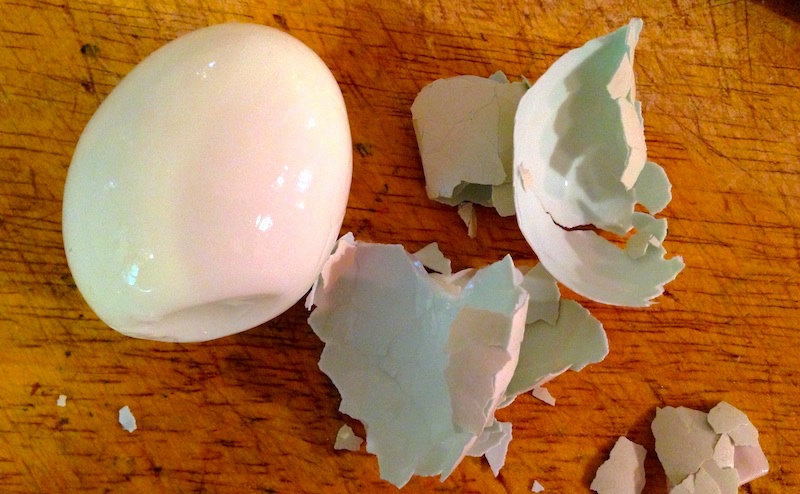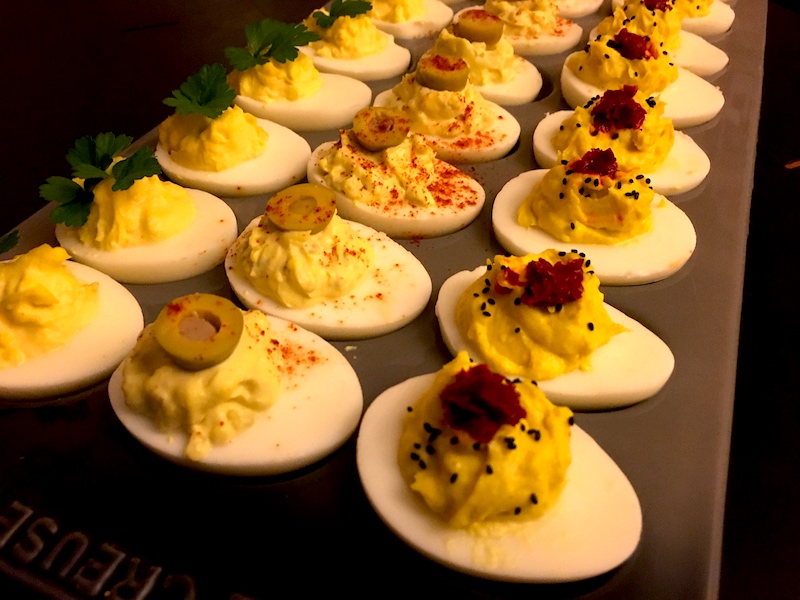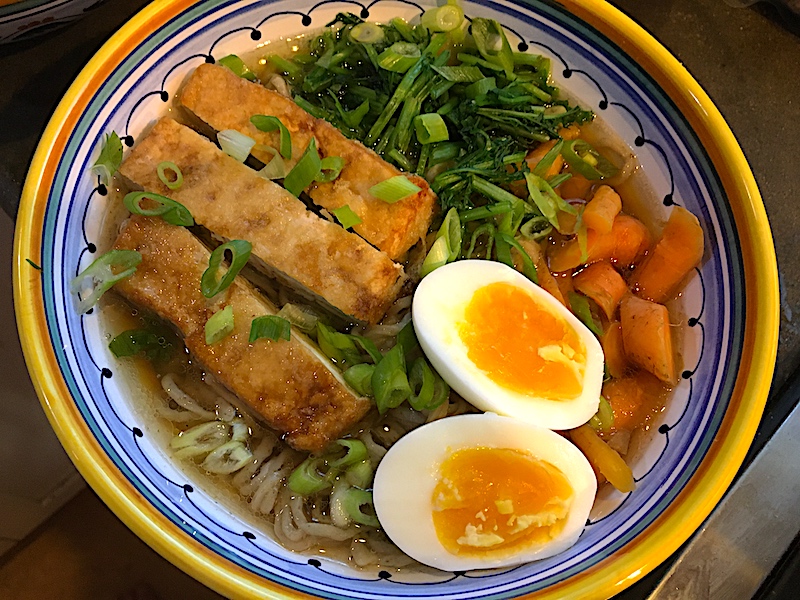
Just In Time for Easter: Easy-to-Peel Farm Fresh Eggs!
Recently I was shocked to read that a well-known columnist and chef had published an article about deviled eggs with the dictum "never use super-fresh eggs, because they will not peel."
I beg to differ.
 One of the joys of using fresh eggs from pasture-raised hens is their flavor, that indescribably eggy brightness that comes from the chickens' diet of grass, bugs and minerals found in the soil around them. Their unctuous, velvety texture and brilliant deep yellow-orange color would have—and probably did—set Van Gogh's heart aflutter.
One of the joys of using fresh eggs from pasture-raised hens is their flavor, that indescribably eggy brightness that comes from the chickens' diet of grass, bugs and minerals found in the soil around them. Their unctuous, velvety texture and brilliant deep yellow-orange color would have—and probably did—set Van Gogh's heart aflutter.
Not to mention that pastured birds live their lives with the sun on their backs and the earth under their feet, taking dust baths and socializing with their friends rather than crowded under artificial light in dim barns, breathing the dust kicked up from the litter of their own urine and feces. Ick!
 And yes, anyone who's cracked open a fresh-from-the-hen egg will notice that the white does cling to the shell much more tenaciously that its sad, store-bought sibling. That's because eggs in the grocery coolers, even those labeled as "pasture-raised," can be up to a month old when you get them home. (The above-mentioned writer even suggested buying store eggs, then keeping them in the fridge for "seven to ten days." That would mean they could be up to a month-and-a-half old. Imagine how great those would taste!)
And yes, anyone who's cracked open a fresh-from-the-hen egg will notice that the white does cling to the shell much more tenaciously that its sad, store-bought sibling. That's because eggs in the grocery coolers, even those labeled as "pasture-raised," can be up to a month old when you get them home. (The above-mentioned writer even suggested buying store eggs, then keeping them in the fridge for "seven to ten days." That would mean they could be up to a month-and-a-half old. Imagine how great those would taste!)
So how to make those super fresh eggs peel easily? The trick is getting the egg white to release from the inner membrane (the "skin" on hardboiled eggs) and end up with perfectly unmarred whites for your platter of company-worthy deviled eggs.
The technique is dead simple:
- Make sure your eggs are at room temperature. This will reduce cracking when submerging them in boiling water.
- While they sit, bring a pot of water to boil over high heat.
- Slowly lower the eggs into the boiling water.
- When boiling resumes, set timer for 15 min. and reduce heat to keep at a low boil.
- When timer goes off, immediately submerge them in an ice bath until thoroughly chilled, then peel.
How easy is that?
Oh, and the author of the article in question also said that it's overcooking that causes the "dark green ring around the yolk and a funky, sulfurous taste." Wrong again! In my experience, it's caused by not taking the eggs from the boiling water and immediately putting them in the ice bath as instructed above. Do that and you'll never again have that greyish-green ring on your yolks.
And if you're looking for some killer deviled egg recipes, here are four of my favorites!